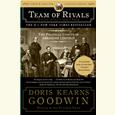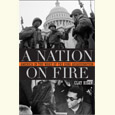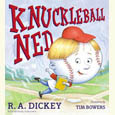Out of Safe Hiding
When a judge stopped the presses on Alice Randall’s first novel, Shelby Foote came to her aid
When asked what my favorite novels are I usually say Wide Sargasso Sea, Coming Through Slaughter, and Their Eyes Were Watching God. I claim the madwomen’s story, the black and brilliant artist’s tale, and the elemental brown girl’s love story. I claim Rhys, Ondaatje, and Hurston.
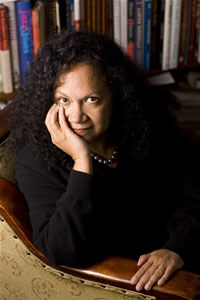
I’m thinking about adding Love in a Dry Season to the list. I’ve been reading Shelby Foote of late. Today marks the 150th anniversary of the Battle of Fort Sumter and the start of the Civil War. For a large cross-section of Americans, Shelby Foote’s Civil War—after three volumes, two million words, and feature treatment in Ken Burns’s documentary series—has become the Civil War.
In the documentary, Foote sits on a couch in his elegant Memphis mansion, looking every inch the Southern patrician, and he talks.
He’s got a voice that brings to my mind the mist that rises from catfish ponds and Mississippi River mud and tattered old volumes of Shakespeare. When I first heard Foote’s voice, in 1990, coming out of my television, his voice sounded like King Cotton and magnolias, like moonlight and Southern aristocracy. His voice scared me.
Ramrod straight, talking on a couch, Shelby Foote turned blood and bullets into narrative, transformed the Civil War into something Americans could walk away from grown. He performed for the nation a kind of biblio-therapy by offering a sufficiently full version of the war, a story that gave us a way to remember our losses and our selves, a way for a divided nation to rise up whole. We owe Shelby Foote. He has done as much as any man to help our nation put the Civil War behind us. And he did it by putting the Civil War right in our face. He embraced the past so that we might each release it.
As the black descendent of a white Confederate general, I was, and am, particularly and peculiarly grateful. But I was also uneasy. There was still Foote’s voice, and the dulcet tones of that voice rang warning into my coffee-colored ears, for it seemed to tell my coffee-colored hands to feed with a long-handled spoon the Mississippi writer who moved to Memphis—even as I rose up whole.
And so a decade and a bit later, in 2001, when Shelby Foote was one of the writers who wrote to a Georgia judge on my behalf when the presses were stopped on my first novel, The Wind Done Gone, I was surprised. Having Shelby Foote take my side against the Margaret Mitchell estate was a little like having Ashley take sides against Scarlett with an unacknowledged but not unborn daughter of Mammy’s. Of all the writers who stood with me—and to this day I keep in my bedroom a collection of books by those who offered the shelter of their name to my first novel: Toni Morrison, Pat Conroy, Harper Lee, Ishmael Reed, John Egerton, Tony Earley, Michael Kreyling, Larry McMurtry, and Arthur Schlesinger among them—no one had more to lose than Shelby Foote.
The fight between Margaret Mitchell and me, the fight between the dead white Southern icon and a black upstart writer, was a fight Foote could have sat out without harm or foul. Jumping in on the side of the black upstart, on the side of the woman who had achieved the literary equivalent of Prissy’s slapping Scarlett back, was guaranteed to lose him some readers and get him bruised. Foote ran to my rescue with nothing to gain, and many people were very, very surprised.
I thanked Toni Morrison with a pair of peridot earrings. I hope she got them; I never heard. I thanked Harper Lee with a note and a silver julep cup. She wrote me a two-page thank-you note in return. I sent Pat Conroy a set of plated silver juleps, and when we ran into each other in North Carolina I asked him if I could kiss him, and he said yes and stood to receive my kiss. I wanted to write to Shelby Foote, too, but I was afraid.
I put my copy of The Beleaguered City, his account of the siege of Vicksburg, on the chair with the other books. On occasion I would pick it up and stare at the photograph of Foote in a tweed jacket and a plaid shirt and a pipe and a dapper canvas hat, standing before a dark statue of a naked woman, with his beard and his mustache and the deep circles beneath his eyes. Around the time Foote died I happened to glance at that photograph when a paraphrase of a line I had once read in a children’s book, The Summer of My German Soldier, passed through my mind. It was a line spoken by a wise black woman to an uncomprehending white child: “A friend is someone who will run out of safe hiding to save you.”
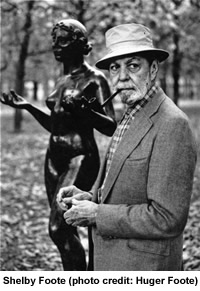 Shelby Foote was my friend, my good and true friend. He had run out of safe hiding to help me, and I didn’t know why.
Shelby Foote was my friend, my good and true friend. He had run out of safe hiding to help me, and I didn’t know why.
It took me almost a decade to figure it out. Last year my daughter moved to Greenwood, Mississippi, not far from Foote’s hometown, and I started reading him again. Except this time I didn’t read the trilogy and I didn’t read the novels about the war. I read Love in A Dry Season.
In his fiction (he wrote six novels), Foote writes about lives informed by profound attachments, not all of them good. Love in a Dry Season opens with the death of a father—“Major Malcolm Barcroft was sixty-seven when he died, the last male of his line”—and ends with the triumph of a lover. The very last line of the novel reads, “He wore the uniform of a colonel in the Tennessee Home Guard.”
Reading Love in A Dry Season is to travel into the heart of much darkness—the exotic of the Delta, the erotic of a marriage bed touched by sadism, the soul of an abusive father, the mind of a calculating man, the front hall of a prosperous mansion where seeing-eye dogs are strangled with bare hands and a guest gets shot in the head and a country-club wife gets her teeth broken—with a narrator ever ready with night-vision goggles, and all of it presented as somehow an aftershock of the Civil War.
This is a thing Shelby Foote and I have in common: we see and write the war at work in the lives of Southerners, black and white—decades, then a century, now a century and a half, later. In all three of my novels, my protagonists encounter the Civil War. Cynara (the heroine of The Wind Done Gone) lives through it; Windsor (the heroine of Pushkin and the Queen of Spades) contemplates the war through the lens of DuBois; Hope (the heroine of Rebel Yell) is fixated on the Confederate War Memorial in Arlington National Cemetery, black Confederates, and Civil War battlefields as places of religious conversion.
The strangest thing I saw in Foote’s illumined dark was the multitude of trifles, strategies, and tropes we share, beginning with a favorite theme of mine: the unvoiced black view. From the first page of Love in A Dry Season, Foote acknowledges that there is a black perspective on the town and that he is not telling it. About Major Malcolm Barcroft, he writes: “When he stood alone or walked about for his evening constitutional he gave an impression of height and stiffness—‘high-stomached,’ Negroes called him; but when he was juxtaposed among other men you saw that he was not really tall and that his shoulders were even a bit stooped.”
Deftly, with a few strokes, Foote establishes the existence and precision of the Negro view. The whites see Major Barcroft as tall but he wasn’t. The Negroes see him high-stomached. And he is. In this moment, Foote anticipates The Wind Done Gone because he notes that there is a “Negro” perspective—and then he goes much further than other of his contemporaries and friends, including Walker Percy and William Faulkner, by implying that the Negro perspective is more accurate.
Love in a Dry Season is also a testament to Foote’s ability to write the interior life of women. Between the dead old man raised in Reconstruction times and the middle-aged dandy’s triumph, between bookending performances of masculinity informed by the Civil War, three women’s lives are stretched to breaking points by their profound attachments to siblings, cousins, parents, physicians, priests, and lovers. In the novel Foote reveals as astonishingly different three white women all born to Delta privilege, living at the very same time, in the very same cotton town (two in the very same house).
And he writes explicitly of Cynara, the name of the woman in the poem that opens Gone with the Wind. When I got to page 229 of Love in a Dry Season and read the name of my own protagonist, I had my explanation of why Foote signed on to defend my pages and my heroine. Cynara. We both wondered about her in the aftermath of the Civil War. We both included her in our fiction.
But that is not all. Page after page, syllable and sound, Foote embraces nakedness. His world, his post-Civil War world, allows feminine fecund nakedness as an antidote and rebalancing of masculine martial nakedness. He braids raw sex, tender domesticity, and weird event into a world and a prose I find peculiarly akin to my own, and peculiarly reflective of the South as I know it.
The evils of parental ambition particularly regarding their children’s sexuality. Check. Southerners travelling abroad in Europe. Check. Fascination with Ernest Dawson. Check. The inner life of women. Check. The banal evil of white men. Check. The unknowable inner life of black domestic servants. Check. The centrality of the feminine to the Southern. Check. A balancing of public and private life. Check. Absolute condemnation of the pages between the covers of Gone With the Wind. Check.
I could have used these words of Foote’s from Love in a Dry Season as the epigraph for The Wind Done Gone: “The trouble was the people, she told herself. The women were vacuous, flighty, really absurd. And the men: the men were boring. They were planters—or they imitated planters, which was worse—too bluff, too hale, too muscular, too sunburnt, talking cotton and niggers, niggers and cotton, as vacuous as the women.”
Reading and re-reading Shelby Foote, I came to a shocking conclusion. We chew on opposite ends of the same bone. I claim the war story. I claim our war story. Major Barcroft liked to quote Stonewall Jackson and praise excellence with Jackson’s words, “Good, good.” I quote Jackson, too. My daughter has been known to call me Stonewall Mommy. Good, good, Shelby Foote.
Copyright (c) 2011 by Alice Randall. All rights reserved.
[This article appeared originally on April 12, 2011.]
